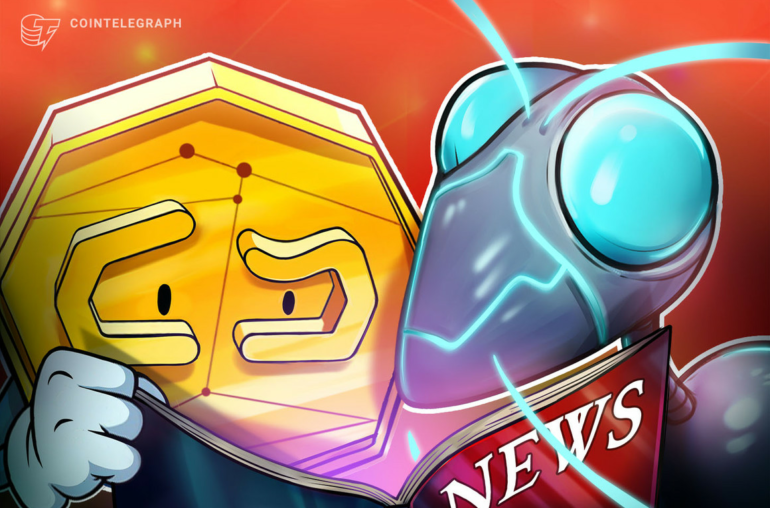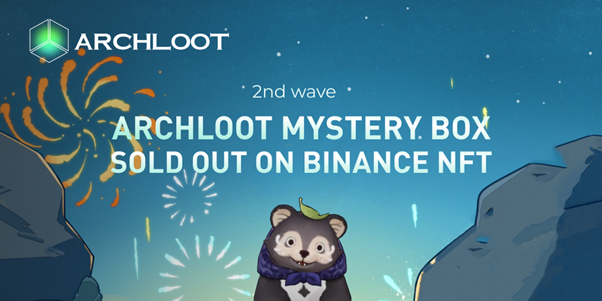Everyone in the non-fungible token (NFT) market is terrified that the U.S. Securities and Exchange Commission (SEC) will decide that NFTs are securities and regulate them. They should get over it. Of course NFTs are securities. That’s what makes them so powerful and promising.
Rather than avoid SEC regulation, the NFT industry should embrace this categorization. It’s inevitable and desirable, especially because once the SEC understands how the NFT market works, it’s likely to regulate with a light touch.
I hope that got your attention. Let me explain by way of analogy.
Brian Frye is a law professor at the University of Kentucky and conceptual artist who works with NFTs. This article is part of Crypto 2023.
The art market has always been a securities market, we just couldn’t see it, because objects got in the way. The art market is the market for "art as an investment." Most people think when you buy an artwork, you’re buying an object. Wrong. You’re really buying an entry on an artist’s catalogue raisonné, the list of all the artworks the art market attributes to that artist.
That ledger entry is usually accompanied by a physical token, typically a dirty canvas or lumpy lock. It doesn't matter what is represented, because only the ledger entry has valuable. You can tell this is true because if the connection between the ledger entry and the object is broken, the object is worthless, even though it hasn’t physically changed. In other words, the object just enables the sale of the ledger entry, like a bearer bond.
The NFT market works exactly the same way, it just eliminates the object and enables collectors to trade ledger entries directly, rather than by proxy. Obviously, that’s great, because it’s way cheaper and more efficient than trading fragile, costly objects. It used to be that collectors traded receipts for paintings stored in an Swiss art freehold. Now they can trade NFTs instead, what a relief.
But eliminating the art object forces us to wrestle with the nature of both the NFT and art markets. I refer to NFTs as “uncanny” tokens, because as Freud observed, they represent the return of the repressed, as the familiar becomes unfamiliar. Why do so many people find NFTs and the NFT market unsettling? Because they take art and the art market, which everyone thought they understood and make it look weird. Why would collectors spend $1 million on a digital receipt? The same reason they spend $1 million on a dirty canvas: they hope to sell it for more.
See also: The Art World Underestimates the Power of NFTs
So, what are you really buying when you buy an artwork or an NFT? A fractional interest in the commercial goodwill associated with an artist, or rather, a share of the artist’s “clout.” If the artist becomes an art star, then their clout will increase and you will be able to sell your artwork or NFT at a profit. But if their star fades, your artwork or NFT is worthless, just like any other failed investment.
We live in a clout economy
Is an investment in artwork or NFTs a security? Of course. The Supreme Court’s well-known Howey test states that an investment is a security the SEC can regulate if it is an investment of money in a common enterprise with the expectation of profit based on the efforts of others. Every investment in artwork or NFTs is an investment in an artist’s career, with the expectation (or at least hope) of profit, by virtue of the artist becoming famous. It couldn’t be more obvious that art and NFT collectors are buying a security interest in an artist’s career.
O.K., so can the SEC regulate the art market and the NFT market? Of course it can. But it doesn’t want to, or at the very least it likely wouldn't regulate the asset class very heavily. Everyone says the key question is whether an investment “is” a security. But that’s stupid. The Howey test is hopelessly expansive – anything can be a security if you squint a little. The real question – the important question – is whether the SEC wants to regulate an investment.
The SEC very much doesn’t want to regulate the art market, and I suspect the SEC will soon figure out that it doesn’t want to regulate the NFT market either.
Why come? Well, because the SEC is in the business of regulating things it thinks “look like” securities. Historically, the SEC regulated the kinds of things it had always regulated (like stocks and bonds) and has avoided regulating new things even (if they'd fit the definition of a security). This is especially true when these things that would be new to the SEC have been around for a long time, like the art market.
Of course, the SEC has been making noises about regulating NFTs. I suspect it will soon regret most of what it has said and begin backpedaling, because the agency doesn’t have much to offer the NFT market. And if it starts regulating the NFT market, it’ll be hard put to explain why it isn’t regulating the art market as well.
My best guess is the SEC will leave well-enough alone, regulate a few tokens that look the most like stocks and then back off.
See also: The Different Types of NFTs: A Simple Guide
But wait. That’s where it gets cool. Because if the NFT market really is a securities market in clout, its potential is massive. We live in a clout economy, in which people value nothing more than fame. Celebrities are the vehicle through which people understand their own lives and the world around them. They generate massive amounts of social capital by making the world meaningful for consumers.
And yet, celebrities can only capture a tiny fraction of the social value they generate. Kim Kardashian may be a billionaire, but she is leaving many more billions on the table in social value she can’t claim.
NFTs could change all that by enabling celebrities to securitize their fame. What if Kim Kardashian could sell NFTs effectively representing a fractional interest in her clout? People who think she will be even more famous in the future could speculate on just how famous she will become and people who think she is a flash in the pan could short her clout.
The point is, it would give celebrities – even authors – access to the capital markets they’ve never had before. That could transform the market for knowledge goods, by enabling authors to sell investments in their project, rather than expensive copies.
We live in a world of digital abundance, as yet unrealized. Maybe NFTs can help us get to the promised land.
In this article, we discuss the 12 cheap value stocks to buy according to Warren Buffett. If you want to skip our discussion, go directly to 5 Cheap Value Stocks to Buy According to Warren Buffett. Warren Buffett and His Investment Strategy Warren Buffett is one of the most successful investors in the world and […]
It’s a big day for shareholders of tiny Kala Pharmaceuticals. The biotech company, which aims to treat rare diseases of the eye, said Tuesday that the Food and Drug Administration has accepted the company’s investigational new drug application for its lead drug candidate, known as KPI-012. That means the company can start a fresh clinical trial early next year for the drug candidate, which aims to treat a disease called persistent corneal epithelial defect. Kala shares more than tripled in Wedne
Dozens of changes are coming to America's retirement landscape.
The FDA accepts Kala Pharmaceuticals' (KALA) investigational new drug application for pipeline candidate KPI-012 for treating persistent corneal epithelial defect. Stock up.
Tesla investors already lost more than $700 billion on the stock this year. How much more can this S&P 500 stock drop?
Yahoo Finance Live takes a look at AMC shares following comments from CEO Adam Aron and the theater chain's stock outlook.
Yahoo Finance Live anchors discuss Southwest CEO Bob Jordan’s address on the airline’s network issues, flight delays, and cancellations amid winter storm chaos.
Ford Motor Company (F) closed at $11.20 in the latest trading session, marking a -1.41% move from the prior day.
As part of a bigger bill to keep the government running, Congress has passed, and President Biden has signed, something called Secure 2.0, which will make it easier for millions of Americans to stash more cash into their workplace retirement plans. Finally, it will make it easier for part-time workers to enroll in an employer’s retirement plan, by requiring plans to automatically enroll workers unless they opt-out. Why should retirement plans be available only to full-time workers?
Warren Buffett’s Berkshire Hathaway has returned a staggering 3,641,614% since its inception in 1965. Those results speak for themselves. By comparison, the S&P 500 has returned 30,209% in the same time frame. A single dollar invested in Berkshire Hathaway in 1965 would have turned into $36,714, while the same dollar invested into the S&P 500 would have returned just $303. But not even Buffett is immune to the law of large numbers. The bigger something gets, the harder it is for it to keep growi
Shares of Apple (NASDAQ: AAPL) were falling today on yet another data point showing weak iPhone sales heading into the new year. Market research firm Trendforce cut its forecast for iPhone shipments in 2022 after a COVID-19 outbreak in Zhengzhou, China where Foxconn manufactures iPhones. Due to the capacity crunch at the Zhengzhou plant, Trendforce now expects total iPhone 14 shipments of 78.1 million down from an earlier forecast.
Cathie Wood makes big bets on potential huge winners. But Ark Invest's top 10 holdings, including Tesla and Roku, have tumbled in 2022.
Beneficiaries of 529 plans will be able to roll over funds from their 529 accounts to Roth IRAs tax and penalty free.
The worst may be over for the stock market for this cycle, but many economists see more pain ahead for 2023, including a possible recession that will create poor financial-performance comparisons for companies and send stock prices even lower. Greg Adams, director of quantitative and risk management at fund manager Alger, recommends that investors focus on companies with solid balance sheets and strong cash flow to endure tough times. Alger is based in New York and has $26 billion in assets under management.
There's a short answer to whether CRISPR Therapeutics (NASDAQ: CRSP) could help you become a millionaire: Yes. Here are five reasons why the company, which just went public in 2016, could make you a millionaire. CRISPR and Vertex Pharmaceuticals say they expect to complete their biologics license application early next year for exa-cel, to treat blood disorders beta-thalassemia and severe sickle cell disease.
Once a symbol of extravagant wealth, $1 million is now the retirement-savings goal for millions of Americans. For retirees able to accumulate $1 million in savings, the funds translate into inflation-adjusted income of $40,000 in the first year of a three-decade retirement using the 4% spending rule. With the addition of the average annual Social Security payment for retirees of about $20,000, a $1 million nest egg can replace about 85% of a $70,000 median household income.
The recession drum beats on, interest rates are rising, and the stock market has taken a tumble, and yet retail sales have risen 6.5% in the last 12 months, trailing a 7.1% increase in the cost of living. The personal saving rate — meaning personal saving as a percentage of disposable income, or the share of income left after paying taxes and spending money — hit 2.4% in the third quarter from 3.4% in the prior quarter, the Bureau of Economic Analysis said. Are people buying stocks during a bearish market, and/or have they run out of their pandemic-era savings?
Oil stocks dominate this list of today's fastest-growing stocks, all eyeing 100%-1,220% EPS gains this year.
The heavy selling pressure might have exhausted for GameStop (GME) as it is technically in oversold territory now. In addition to this technical measure, strong agreement among Wall Street analysts in revising earnings estimates higher indicates that the stock is ripe for a trend reversal.
This stock has everything right: It's discounted from recession fears, has great management, benefits from rate hikes and has a competitor on wobbly footing.



